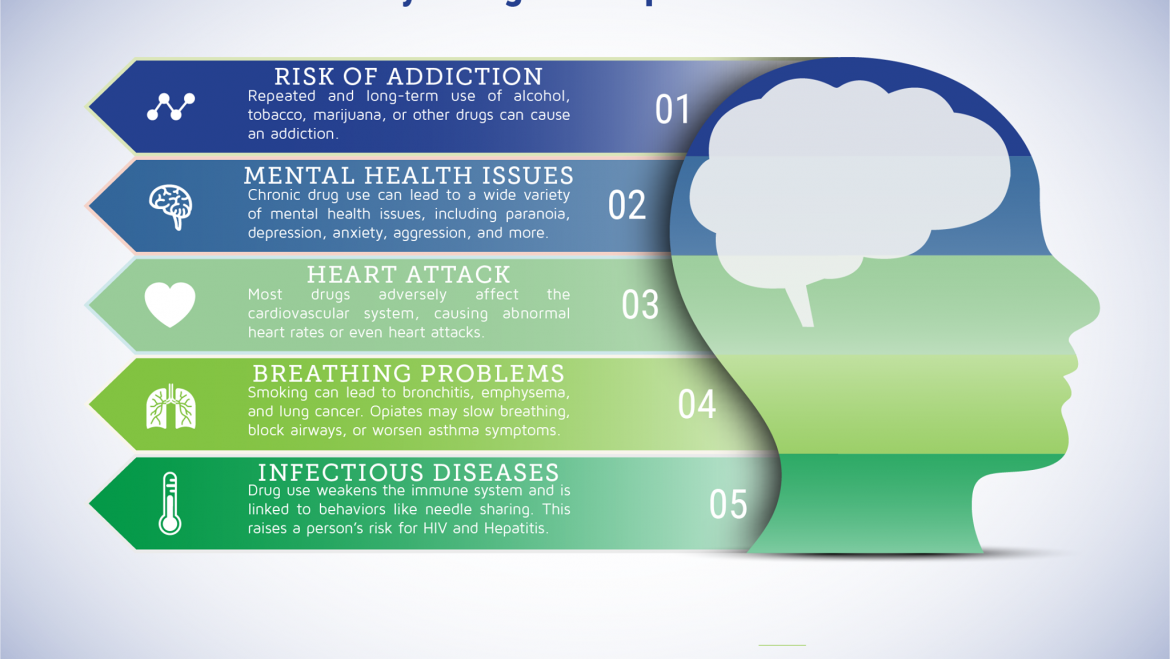Drug Use and Teen Health
Drug use among teens is a serious concern for parents, educators, and public health officials. The statistics on teen drug use are alarming: illicit drug use is most common in young adults between the ages of 12-25. The health consequences of teen drug use are serious and varied.
Physical and Mental Health Effects of Drug Use
Drugs can lead to a variety of physical and mental problems. Addiction is the most common outcome of substance use, particularly among young people. Substance dependency can affect day-to-day life, including friendships, school performance, and athletic performance.
Furthermore, drug use puts teens at risk of developing mental health disorders, such as depression, anxiety, and psychosis. Drugs alter the ways neurons interact within the brain, leading to feelings of elation when the drug is present, sickness or depression when feeling withdrawal from the drug, as well as inhibited decision making abilities. Drug use also can negatively affect typical brain development in young people.
Drug use puts people at risk for serious medical conditions including liver damage, lung disease, or heart failure. Death may also result either from an overdose, accidents, or violent activity happening during a drug-induced state. Different substances have varying effects on a user’s body. Heroin is an opioid that slows breathing and heart rate, putting a user at risk for overdose. Cocaine is a stimulant that increases heart rate, blood pressure, and body temperature—all of which also increase the possibility of accidental overdose.
Finally, drug use harms the immune system, making the user more likely to contract infectious diseases and less likely to fight them off. The use of contaminated drug equipment, such as needles, can lead to the spread of serious blood-borne infections, including Hepatitis B and HIV.
Negative and dangerous health effects resulting from drug use among teens are wide-ranging and dire. Parents should talk to their teens often about drug use to keep healthy and safe lines of communication open. The CDC also recommends regular drug screenings, such as those offered by DFCA, to help deter teens from drug use.
Drug Free Clubs of America is on a mission to reduce the impacts of drug use in youth. Across the nation, drug and alcohol use is on the rise among teens. We provide students with practical tools and techniques to navigate peer pressure and choose a healthy lifestyle. Partnering with schools and communities, we offer preventative programming to meet students where they are. Through randomized drug testing, educational resources, a positive outlet, and a supportive community, we are changing school cultures and reducing alcohol consumption, marijuana use, vaping, and other detrimental activities among DFCA members and entire student bodies. Drug Free Clubs of America has more than 5,000 student and faculty/staff members and Clubs in more than 50 schools in Ohio, Kentucky, and West Virginia.




Add Comment